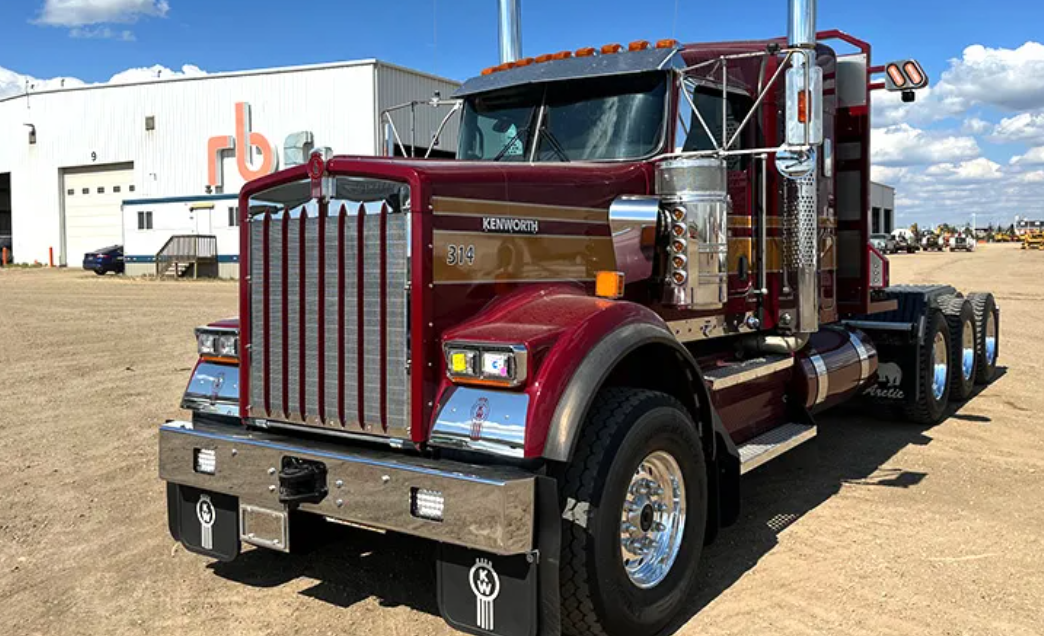Government Regulations

The Federal Motor Carrier Safety Administration (FMCSA) has recently proposed speed limiter mandates for commercial trucks. While the intention behind the regulation is to improve road safety, many within the trucking industry, including drivers and fleet owners, believe this policy will have unintended consequences. Let’s examine why the FMCSA should reconsider speed limiters and explore the possible downsides from an industry perspective.
Impact on Road Safety
One of the FMCSA’s primary arguments for speed limiters is improved safety by reducing high-speed crashes. However, many trucking professionals argue that limiting truck speeds can actually decrease road safety in certain situations.
When trucks are forced to travel at speeds lower than the flow of traffic, they create a significant speed differential between trucks and other vehicles. This difference leads to more lane changes, tailgating, and risky overtaking maneuvers by frustrated drivers trying to pass slower-moving trucks. Research from the American Transportation Research Institute (ATRI) suggests that crashes are more likely to occur in environments where vehicles are traveling at dramatically different speeds.
For example, on a highway with a speed limit of 70 mph, if trucks are limited to 60 or 65 mph, passenger vehicles traveling at 70 mph or higher will frequently encounter slower trucks, which could increase the likelihood of collisions. Consistency in speed, not artificially reduced speed, is key to safe driving conditions.
Economic Impact on Trucking Companies
For a large portion of the trucking industry, time is money. Commercial trucking relies heavily on maintaining efficient delivery schedules. Speed limiters would slow down shipments, leading to longer transit times and increased operational costs. Even a small reduction in speed can accumulate into hours of extra driving time over long hauls, which reduces overall productivity.
The impact of these delays is especially critical for sectors that rely on just-in-time (JIT) delivery systems, such as retail and manufacturing. Delayed deliveries can lead to costly bottlenecks in the supply chain, affecting everything from stock levels to production schedules.
Slower transit times also mean that trucking companies may need to hire more drivers or add more trucks to maintain the same level of service. This adds further strain to an industry already grappling with a shortage of qualified drivers. Additionally, increased fuel costs from more time on the road could hit smaller owner-operators particularly hard, making it difficult for them to remain competitive.
Driver Fatigue and Stress
Long-haul truckers already face significant pressure from tight delivery windows and extended hours on the road. Imposing speed limiters could lead to increased driver fatigue as drivers spend more time behind the wheel trying to meet deadlines. Fatigue is a well-documented cause of accidents in the trucking industry, and lengthening the time required for trips could exacerbate this issue.
Furthermore, driver stress would likely increase as a result of being unable to keep up with traffic. When trucks are traveling significantly slower than the rest of the vehicles on the road, drivers are forced to continually navigate around merging traffic, deal with tailgaters, and negotiate dangerous overtaking maneuvers.
Increased driver stress and fatigue could result in more human error, leading to accidents, which ironically undermines the FMCSA’s safety goals.
Technological and Operational Challenges
Mandating speed limiters for commercial trucks would also place an additional financial burden on truck owners. Many older trucks are not equipped with modern speed-limiting technology, meaning fleets would need to undergo expensive retrofits or invest in new trucks to comply with the regulations. This could further increase operational costs, particularly for small and medium-sized businesses.
Additionally, enforcement and monitoring of speed limiter compliance could become a logistical challenge. While speed limiters may be effective in theory, ensuring consistent enforcement across all trucks and fleets would require new infrastructure, technology, and oversight, adding further complexity to the trucking industry.
Environmental Concerns
Another argument often cited by proponents of speed limiters is the potential for fuel savings and reduced emissions. However, trucks limited to lower speeds may not always operate in the most fuel-efficient gear for certain road conditions. Depending on the terrain, road grade, and load, speed limiters could cause trucks to operate less efficiently, increasing overall fuel consumption and emissions rather than reducing them.
Modern trucks are already equipped with advanced technologies, such as adaptive cruise control and telematics systems, that optimize fuel efficiency and driver behavior without the need for artificial speed limits. These systems, when combined with driver training, offer a more flexible approach to fuel savings while maintaining safety and efficiency.
Negative Impact on Freight Rates
The increased time on the road due to speed limiters will inevitably lead to higher operational costs for trucking companies. This will be reflected in higher freight rates as businesses look to offset the additional expenses. For companies that rely heavily on freight services, such as manufacturers and retailers, these increased rates could trickle down to consumers in the form of higher product prices.
The potential increase in shipping costs also poses a threat to the global competitiveness of the U.S. trucking industry. With tight margins and fierce competition from international markets, any policy that increases operational costs could have lasting repercussions for the industry as a whole.
A Better Path Forward
While the FMCSA’s goal of improving road safety is commendable, imposing speed limiters on commercial trucks may not be the most effective solution. Instead, the agency should focus on enhancing driver training programs, promoting the adoption of advanced safety technologies, and encouraging better road infrastructure that allows for smoother, safer traffic flow.
By addressing these issues and considering the real-world consequences of speed limiters, the FMCSA can work towards creating a safer and more efficient trucking environment without burdening the industry with costly and potentially counterproductive regulations.



office & Parking depot
5120 Belmont Rd Unit K, Downers Grove, IL 60515, USA
Hours of operation
Mon - Sun: 7am-5pm
